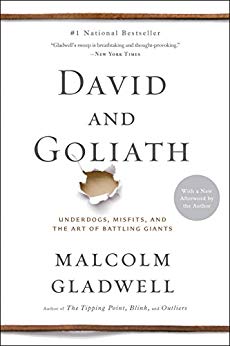

This article is an excerpt from the Shortform summary of "David and Goliath" by Malcolm Gladwell. Shortform has the world's best summaries of books you should be reading.
Like this article? Sign up for a free trial here .
What is the relative deprivation theory? How does it affect the choices I make, in school, at work, and in life in general?
The relative deprivation theory is a theory that says we compare ourselves to the people around us. Our feelings of happiness or deprivation, success or failure, are not absolute, but rather relative to how happy and successful our neighbors are.
Learn why it’s critical to understand the relative deprivation theory when making decisions and assessing your successes and failures.
The Relative Deprivation Theory
We compare ourselves to others. Our feelings of happiness or deprivation, success or failure, are not absolute, but rather relative to how happy and successful our neighbors are. This is the relative deprivation theory.
Countries in which citizens consider themselves the happiest (Switzerland, Denmark, Iceland, the Netherlands, and Canada) have a higher suicide rate than countries in which citizens consider themselves generally unhappy or neutral. If you’re depressed in a place where everyone around you seems happy, you feel worse. However, if you’re depressed in a place where everyone around you also seems a little depressed, you feel normal and things aren’t so bad. According to the relative deprivation theory, we evaluate almost all aspects of life based on these same aspects in the lives of others.
In education, we call this the “Big Fish-Little Pond Effect.” When assessing their own academic abilities, students don’t compare themselves to every other student in the world. They compare themselves to the students in their class. The more elite the school, the more negatively students perceive their own academic abilities.
The Consequences of the Relative Deprivation Theory
Why does how we view our abilities matter?
Our perceptions have real-world consequences. Let’s take a look at the drop-out rates at Hartwick College and Harvard to see the “Big Fish-Little Pond Effect” influences graduation rates in STEM fields.
In America, more than 50% of all students majoring in STEM fields (science, technology, engineering, and math) drop out before receiving a degree. The majority of those who drop out are in the middle or bottom third of the class (ranked by SAT scores). This is true regardless of the university.
- An SAT score of 569 would place you in the top third at Hartwick (Little Pond). Because you’d be in the top third, you’d have a 55% chance of graduating (if you’re basing your chances on statistics from previous years).
- An SAT score of 569 would place you in the bottom third at Harvard (Big Pond). Because you’d be in the bottom third, you’d have a 15.4% chance of graduating.
So, which do you choose? Hartwick or Harvard?
The statistics say you’ll have a far better chance of receiving your degree if you choose to be a Big Fish in a Little Pond and go to Hartwick. Therefore, choosing Hartwick over Harvard is the statistically smarter choice for increasing job prospects.
How can that be?
It’s all about the relative deprivation theory and how we perceive our abilities. When we compare ourselves to our peers at Hartwick, we feel relatively good about our skills. Our confidence increases our chances of success. When we compare ourselves to our peers at Harvard, we feel relatively bad about our skills. We lose confidence in our abilities and think we’re not cut out for a career in the sciences.
According to the relative deprivation theory, the obvious “best” choice may not always be the best. If you understand the relative deprivation theory, you can assess your future success more realistically.
———End of Preview———

Like what you just read? Read the rest of the world's best summary of "David and Goliath" at Shortform . Learn the book's critical concepts in 20 minutes or less .
Here's what you'll find in our full David and Goliath summary :
- Why being the underdog can actually be an advantage
- Why you shouldn't be afraid of powerful giants
- Strategies to get an edge when you're overpowered






